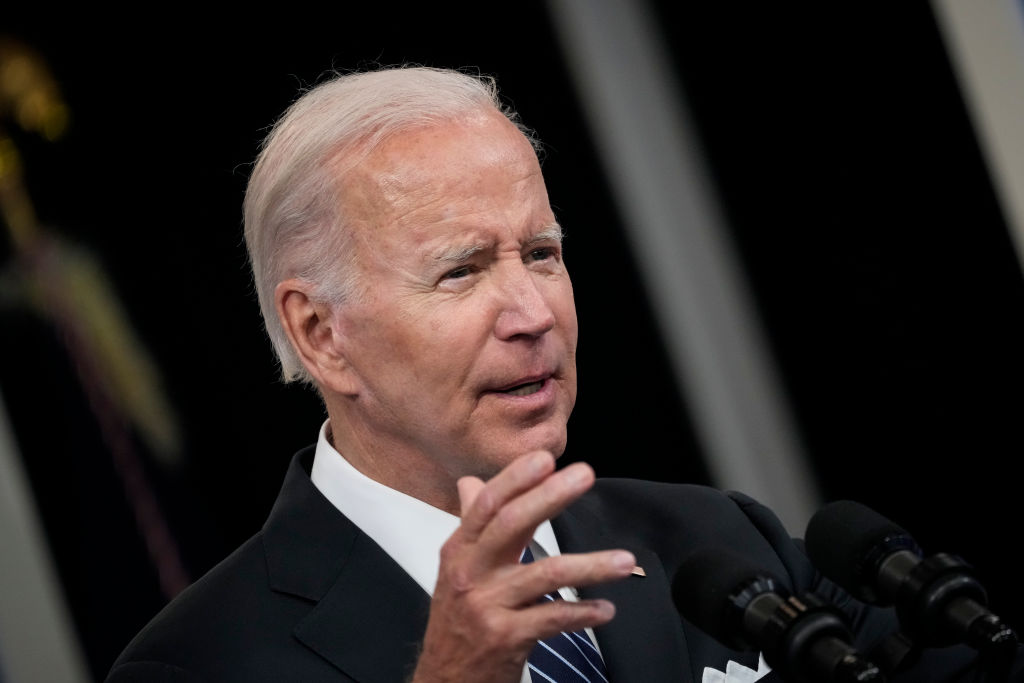With the election of a left-leaning president in Colombia, President Joe Biden’s administration may soon find out just how impractical progressive climate policies can be for the American economy.
Gustavo Petro just won the election in Colombia and his election marks a historical shift in Latin America as he becomes the first leftist president of Colombia, the New York Times reported.
Petro ran on promises to tackle inequality in Colombia, the failed U.S.-led war on drugs and, especially, climate change.
Colombia has been a crucial ally to the U.S. in Latin America and the Biden administration particularly relied on the now outgoing President Iván Duque.
But with a drastic change in the political ideology of the Colombian presidency, the U.S.-Colombia relationship is bound to change.
There could be strains on the relationship particularly when it comes to Petro’s climate plans and the future of oil in Colombia.
Petro wants to phase out oil and mining, the Wall Street Journal reported. This could lead to higher gas prices in the U.S. since Colombia is a significant oil contributor to the U.S.
President-elect Petro previously wrote in a manifesto that he is committed to “undertake a gradual de-escalation of economic dependence on oil and coal,” Climate Home News reported.
Petro also promised to not grant any new licenses for hydrocarbon exploration during his four-year mandate and to halt all pilot fracking projects and the development of offshore fossil fuels.
“If Petro formalises his commitments to phasedown fossil fuel production, Colombia could become the largest fossil fuel producer to do so,” Climate Home News wrote.
Does this plan to phase out fossil fuels sound familiar? It is eerily similar to Biden’s own climate change promises and plans for the U.S. and the whole globe.
Biden promised during his campaign that he would be “banning new oil and gas permitting on public lands and waters” in the U.S.
President Biden even took it one step further, demanding that fossil fuel subsidies should be banned worldwide.
“Demand a worldwide ban on fossil fuel subsidies. There is simply no excuse for subsidizing fossil fuel, either in the United States or around the world,” Biden said in his campaign outline for climate change.
Then in the spring of 2021, Biden kept re-enforcing plans for climate change during the Leaders Summit.
During that summit, the administration even supported “ambitious renewable energy goals and pathways in Latin America and the Caribbean.”
“The Department of State announced scaled-up technical assistance to countries participating in the Renewable Energy for Latin America and the Caribbean (RELAC) initiative, a regional effort led by Colombia, Chile, and Costa Rica to increase renewable energy capacity to at least 70 percent by 2030,” a summary of the summit read.
Now, Petro is simply following Biden’s policy lead for climate change and green energy.
But this could become problematic for the U.S. since Colombia is the fifth-largest oil importer for the states, according to the U.S. Energy Information Agency.
In the midst of the current oil crisis and the soaring gas prices, the U.S. has been relying on foreign oil imports like Colombia’s. They have become more important than ever.
“The U.S. is engaged in an increasingly frantic search to replace oil supplies lost from Russia as it tries to repair diplomatic rifts abroad and boost production at home to stop fuel prices from spiraling out of control,” the Financial Times reported in March, after the invasion of Ukraine.
In the midst of this crisis, the current Colombian President Duque offered the U.S. more oil.
“Colombia will contribute to increasing its market in the United States to the extent that the United States requires it and to the extent of our capabilities,” Duque said, MercoPress reported.
But now, Petro is wanting to wind down oil production.
Even more than that, he is zealously following Biden’s lead on climate policy, even to the point of criticizing the U.S.
“The time has come to sit down with the U.S. government and talk about what it means that they emit more greenhouse gases over there than anyone else, and we absorb them over here,” Petro said in his acceptance speech Sunday after winning the election, the Wall Street Journal reported.
But losing Colombian oil has the potential to make the current oil and gas crisis in the U.S. even worse. Americans simply can’t afford that.
The average gas price is already $4.94 and has been steadily climbing, according to AAA.
Biden has tried over the past four months to blame Russian President Vladimir Putin and his invasion of Ukraine for this crisis.
“Putin’s invasion of Ukraine has driven up gas prices and food prices all over the world,” Biden said in April, ABC News reported. “So everything is going up. We saw it in today’s inflation data. Seventy percent of the increase in prices in March came from Putin’s price hike in gasoline.”
But the looming threat of Colombia going green and shutting down oil production is not Putin’s fault.
If the U.S. loses Colombian oil, Biden will have himself to blame for his overly zealous push for green energy all around the globe and particularly in Latin America.
This article appeared originally on The Western Journal.

























 Continue with Google
Continue with Google